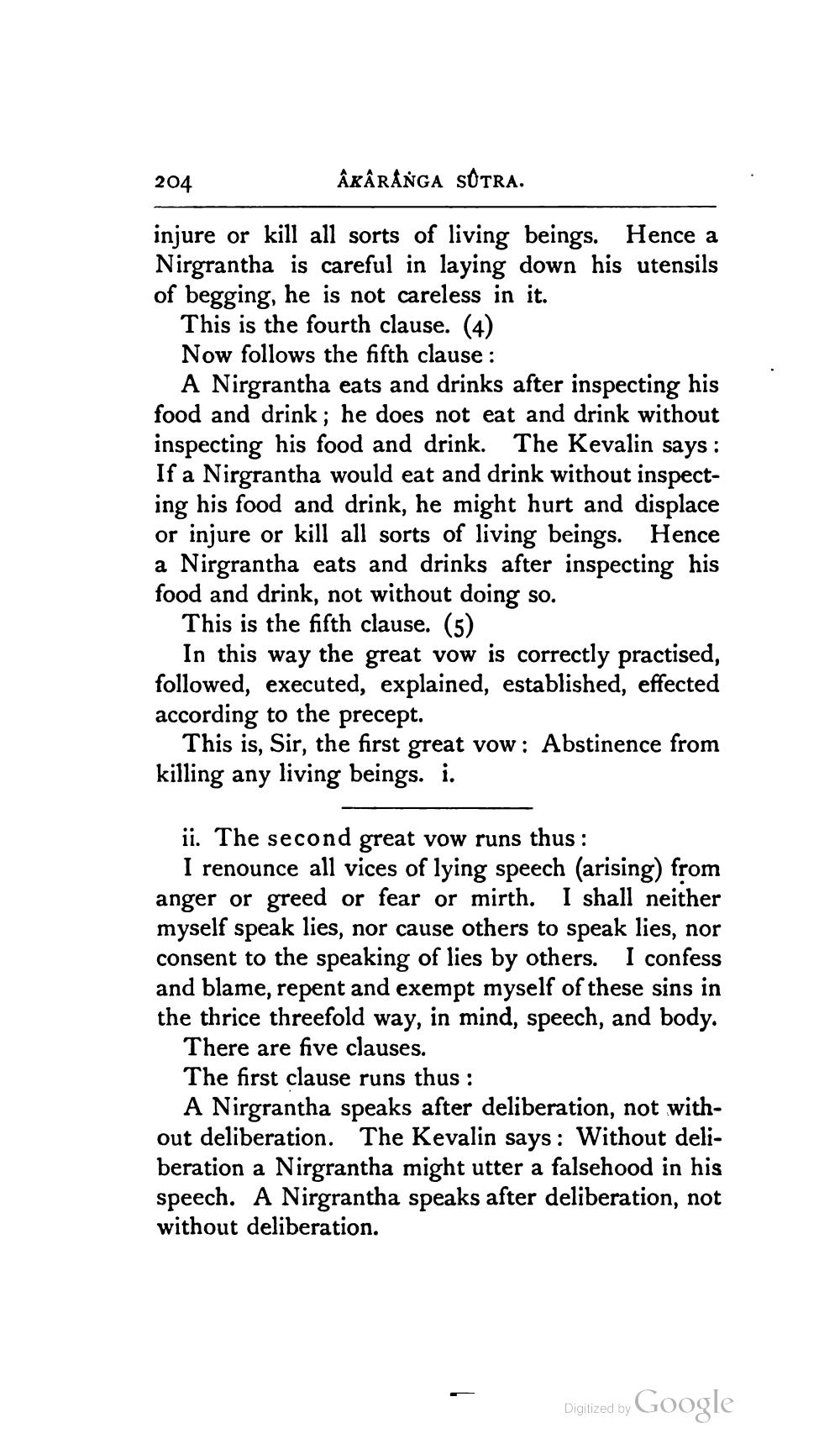________________
204
ÂKÂRÅNGA SOTRA.
injure or kill all sorts of living beings. Hence a Nirgrantha is careful in laying down his utensils of begging, he is not careless in it.
This is the fourth clause. (4) Now follows the fifth clause :
A Nirgrantha eats and drinks after inspecting his food and drink; he does not eat and drink without inspecting his food and drink. The Kevalin says: If a Nirgrantha would eat and drink without inspecting his food and drink, he might hurt and displace or injure or kill all sorts of living beings. Hence a Nirgrantha eats and drinks after inspecting his food and drink, not without doing so.
This is the fifth clause. (5)
In this way the great vow is correctly practised, followed, executed, explained, established, effected according to the precept.
This is, Sir, the first great vow: Abstinence from killing any living beings. i.
ii. The second great vow runs thus :
I renounce all vices of lying speech (arising) from anger or greed or fear or mirth. I shall neither myself speak lies, nor cause others to speak lies, nor consent to the speaking of lies by others. I confess and blame, repent and exempt myself of these sins in the thrice threefold way, in mind, speech, and body.
There are five clauses. The first clause runs thus :
A Nirgrantha speaks after deliberation, not without deliberation. The Kevalin says: Without deliberation a Nirgrantha might utter a falsehood in his speech. A Nirgrantha speaks after deliberation, not without deliberation.
Digitized by Google




